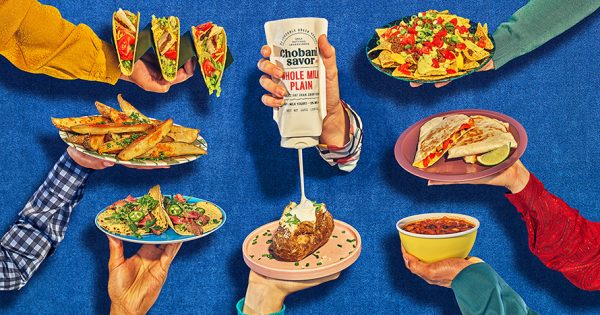How Chobani Is Making Healthy Food More Accessible

As the commercial food industry has gradually awakened to the importance of producing healthier fare, another issue has crept into the spotlight right behind it: accessibility to that fare.
It’s no secret that poor and minority neighborhoods contain a disproportionate concentration of fast-food outlets. The term “food desert”—population centers that are miles removed from any place to buy fresh produce or other healthy fare—is now part of the American vernacular. The bottom line? It’s one thing to talk about healthy eating, and quite another to have it as a real option in your life.
Food accessibility is still an issue that many brands haven’t quite caught up to. But it’s one that Peter McGuinness, president of Chobani, took on at Adweek’s Brandweek symposium earlier this month.
As a brand, Chobani has been talking about making all-natural yogurt for years now. But McGuinness stressed the need for “nutritional wellness” to transcend the ingredient list into the realm of access. Of course, Chobani—which doesn’t have its own stores—remains at the mercy of where grocers and retailers with refrigerated sections choose to build their stores.
But as McGuinness defined it, food accessibility can be facilitated by another method: price.
Following the lead established by founder Hamdi Ulukaya, Chobani is priced “in a way that virtually everyone can afford it,” McGuinness told his audience of brand executives and marketers. “For $1.25, you can get a cup of nutrition—with low sugar, double-digit excellent source protein, calcium, minerals. So it’s a really nutritious snack at an accessible price.”
This, he continued, is “the future of food. This is an important thing. Democratizing better food is the future of food.”
Improving access to healthier foods wasn’t only a McGuinness talking point—it’s a timely issue. The Union of Concerned Scientists, for example, recently took the federal government to task for its continued subsidies of soybeans and corn, crops used largely in the production of meats, processed foods and sugar-based additives.
Writing in the Washington Post earlier this month, physician Leana S. Wen called on the democratic presidential candidates—busy arguing over healthcare plans—to talk about prevention, too. “I’d like to hear candidates explain their plan to lower healthcare costs by discussing how improving food access… will keep people out of hospitals,” she wrote.
And on the brand front, Lyft made news on Nov. 18 when it partnered with the city of Baltimore to offer $2.50 rides to residents of the city’s food deserts to stores where they could buy actual groceries (including, one presumes, nutritious ones).
Of course, Chobani won’t solve the healthy food accessibility issue with its yogurt—or its prices—alone. But McGuinness hastened to point out that a visible commitment to addressing this or any other meaningful social issue is an approach that stands for benefit any brand.
“If you do this,” he told his audience, “you’ll be around for a long time.”
https://www.adweek.com/brand-marketing/how-chobani-making-healthy-food-accessible/